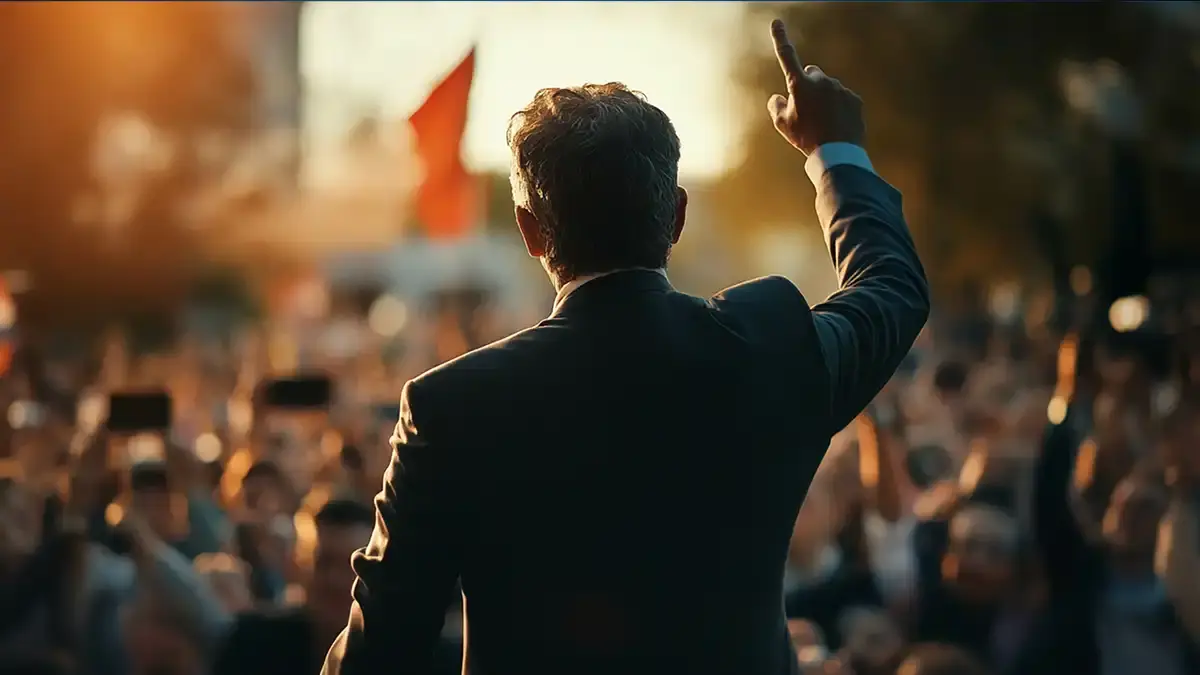Studies show political debates rarely change minds. A cornerstone of a thriving democracy is meant to be free and fair debate. Indeed, for most democratic nations around the world a highlight of an election cycle are leadership debates that are often widely viewed and discussed. But what if these political debates don't change people's minds, nor allow people to access new information or arguments in a useful way? Author of Don't Talk About Politics, Sarah Stein Lubrano, argues that for our politics to change people's minds it needs to create the social conditions for people to have meaningful conversations naturally. Whether we revive the cafe or pub culture that many people are priced out of, or recognise the promise of social media beyond profit motives to bring disparate people together. A healthy political culture doesn't just happen, it needs to be built.
Debate doesn’t work
A friend of mine has often been a radio panelist. So have I. We’ve both noticed the same thing: we’ll often be asked to performatively disagree with the other panelists, to create more disagreement than actually exists. It makes the show more interesting, the producers say.
Maybe so. But creating a false sense of debate also leads to a wildly distorted sense of what’s possible or true. As Emily Maitlis, a former newsreader for the BBC, put it when describing the period of media coverage leading up to Brexit: “It might take our producers five minutes to find 60 economists who feared Brexit and five hours to find a sole voice who espoused it… But by the time we went on air we simply had one of each; we presented this unequal effort to our audience as balance. It wasn’t.”
___
Researchers analysed the effects of 56 TV debates on 31 elections around the world from 1952 to 2017. The study tracked nearly 100,000 respondents, looking at whether debates helped undecided voters change their minds or caused decided voters to switch teams. They found no evidence for either.
___
This regular aspect of staged debate demonstrates so much of what is wrong with our public sphere, the arena in which our society talks about political and social issues. The idea that issues are “up for debate” is often held up as a sign that democracy is working, and yet debating is often ineffective, polarising, and even counterproductive. Researchers analysed the effects of 56 TV debates on 31 elections around the world from 1952 to 2017. The study tracked nearly 100,000 respondents, looking at whether debates helped undecided voters change their minds or caused decided voters to switch teams. They found no evidence for either. An analysis in the Washington Post drew on several studies done by a variety of political scientists, and similarly found that “the effects of debates on eventual votes are likely mild, and, in most cases, effectively nil.” This is remarkable given how much our culture emphasises debate and argumentation, from essay-writing in school to parliamentary protocol.
SUGGESTED VIEWING The politics of populism With Aaron Maté, Jesse Norman, Lionel Shriver
Our friends and our lives change our minds
It’s not just debate that is ineffective and counterproductive. As I demonstrate in my new book, people’s views on political issues are seldom changed by exposure to arguments alone. There are several reasons for this. One is a series of cognitive biases, like confirmation bias and cognitive dissonance theory, that tend to lead us to hold on to our existing beliefs.
___
Two other things tend to structure what we believe instead: our own actions, and our relationships.
___






















Join the conversation